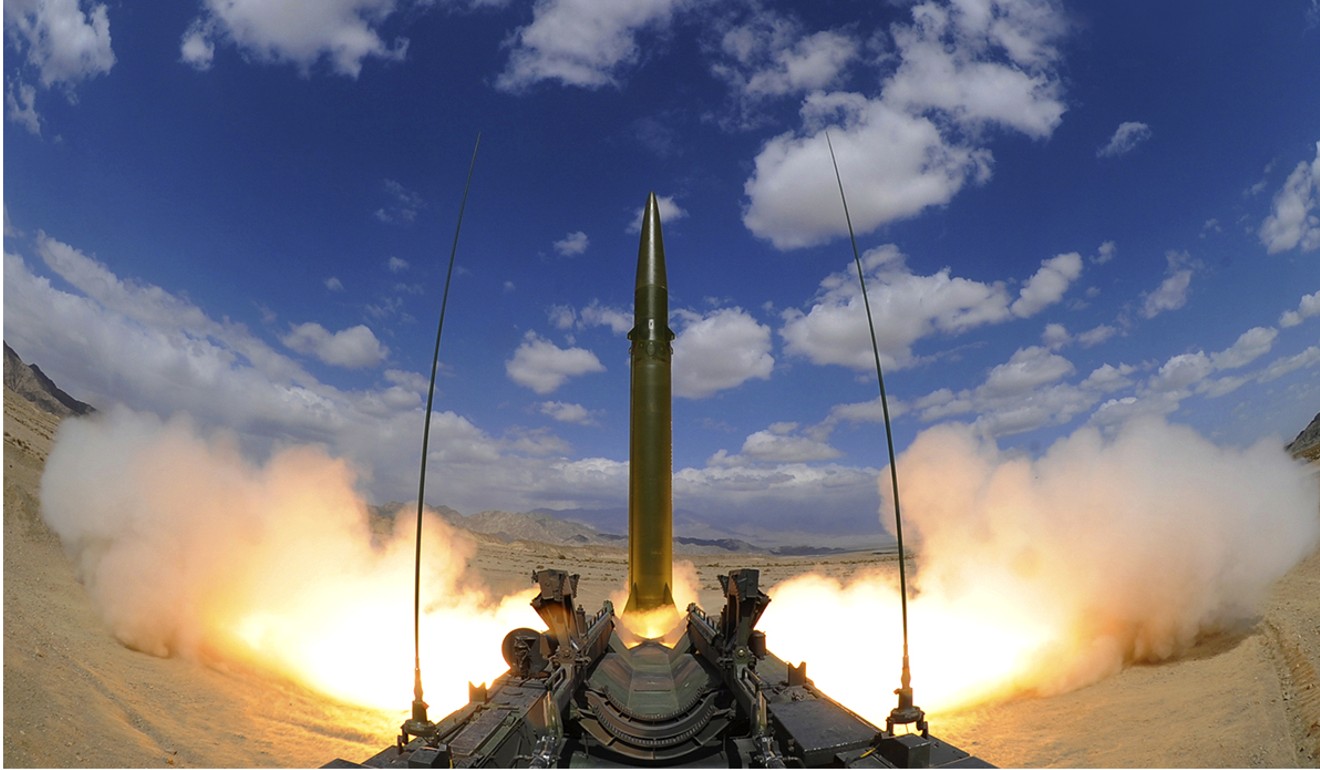
This Chinese weapons lab is putting missile technology into airport body scanners
A Chinese state-run weapons laboratory that specialises in developing smart missiles has unveiled an artificial intelligence-powered body scanner for use in civilian applications like airports.
A research institute under the China Aerospace Science and Industry Corporation (CASIC), a state-owned developer of AI-powered missiles that can track their targets, said its airport screening system can detect 89 banned items within one second, according to a report from state news agency Xinhua on Wednesday.
The system, which boasts an accuracy rate of 95 per cent, is expected to improve the security check-in procedure at airports, where security personnel still manually screen passengers with metal detectors, leading to long delays and heavy workloads.
“Using aerospace technology in security is like using the missile eyes to scan,” Zhao Yinghai, head of the AI lab at CASIC’s No 35 research institute was quoted as saying by China Youth Daily, a Communist Party newspaper. “Nothing can hide under one’s clothes or above one’s skin.”
The report said the equipment was undergoing trial operations at airports in Beijing and Urumqi, the capital city of Xinjiang, which experienced ethnic riots in 2009.
The announcement of the security product comes amid the Chinese government’s ongoing effort to promote commercial innovation, especially in advanced fields such as artificial intelligence. China’s State Council last July laid out a road map for the country to become a leading innovation centre in AI, including the building a domestic AI industry worth US$150 billion.
When contacted by phone on Thursday, a female office worker said the No 35 research institute does not give media interviews.
According to the Xinhua report, the Beijing-based research institute has been developing weaponry with built-in AI technology since 2015. It set up a dedicated AI research lab at the beginning of last year to fast track AI-related research and development. The AI-powered body scanner was the latest development to come out of the lab.
The scanner can “read” all information between clothing and a person’s skin to detect banned items, including corrosive substances and flammable liquids, which are difficult to screen using traditional security measures. The person being screened steps into the machine and holds up their arms for less than two seconds to enable the scan, the Xinhua report said.

Despite rising privacy concerns, Chinese authorities have been widely adopting AI technologies, especially facial recognition systems, to ramp up its monitoring of public security.
AI-powered surveillance cameras have been installed across the country to spot suspected criminals and even jaywalkers. Some of the busiest subway stations in Beijing have already installed facial recognition cameras for crowd surveillance while railway police in central China’s Henan province have been equipped with smart glasses with built-in facial recognition technology to screen passengers.

